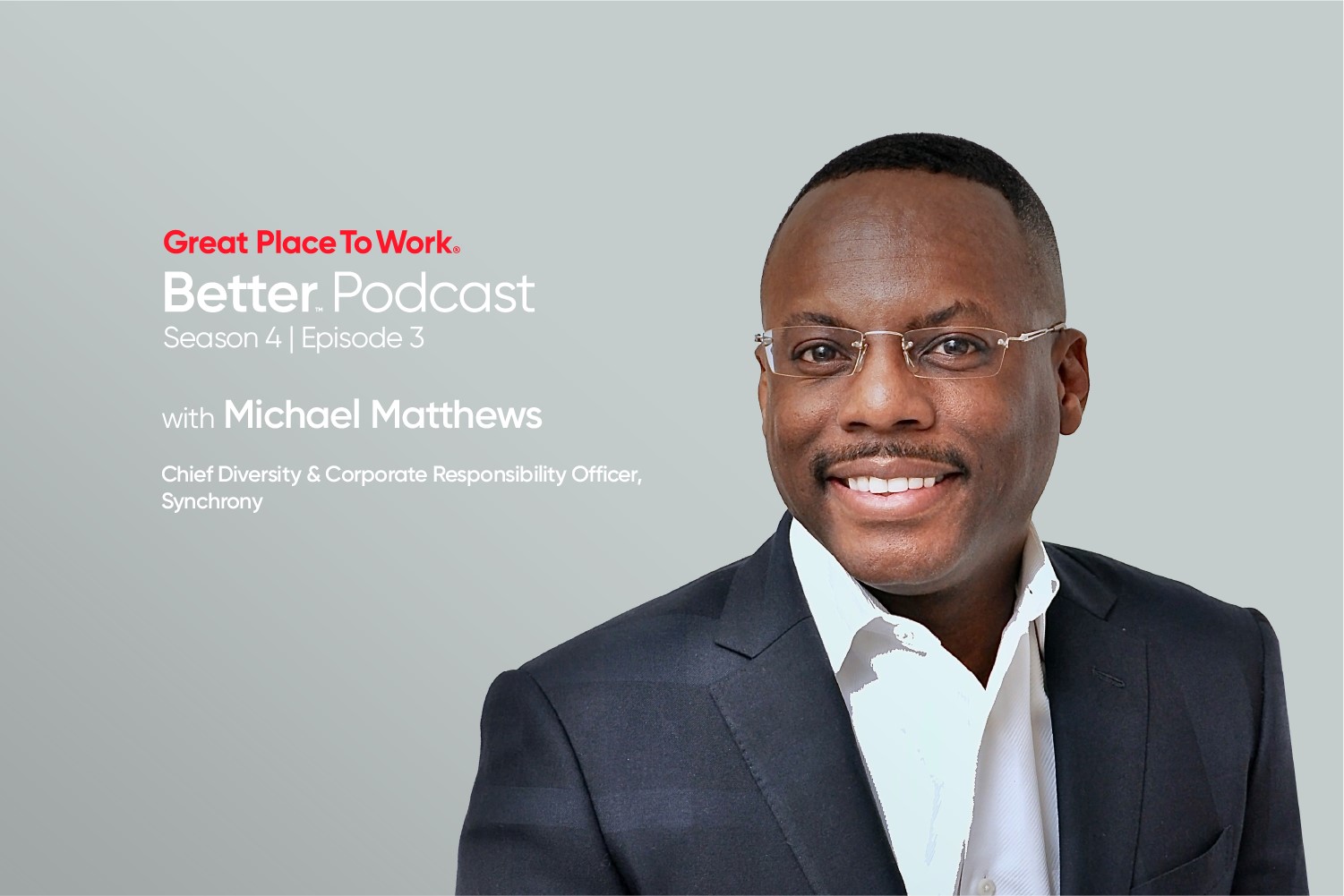Employee Listening, Employee Well-being, Leadership & Management, Listening
Here’s how to care for employees struggling with news from Israel, Gaza, and Ukraine.
How should your organization and your leaders engage with employees on global political news?
The ongoing war in Ukraine was replaced in the headlines after Hamas carried out a deadly terrorist attack in Israel on Oct. 7. Israel has responded with airstrikes and military operations in Gaza and thousands have been killed on both sides of the conflict.
For business leaders, what should the message be to employees?
Edelman’s Trust Barometer research shows that employers are the most trusted institution, and employees expect their employer to have a societal impact on issues that matter to them.
That suggests employers ignore global crises at their peril.
“Trust is really important,” says Tony Bond, chief diversity and innovation officer at Great Place To Work®. The biggest message you should send to employees: “We are taking care of our people.”
“It takes one thing off their mind,” Bond says.
Pat Wadors, chief people officer at UKG, advises focusing on listening more than talking in comments during a Fortune roundtable about the future of leadership.
“From an employee lens, acknowledge what is happening, because they are talking about it,” she says. “Let’s listen to what [employees] are saying. If you feel heard, you feel cared for. If you don’t feel seen and heard – it is really hard to move forward in a healthy direction.”
Find the right forum
Is a townhall the right venue for a discussion about something as sensitive and deeply felt as the conflict in Israel?
Bond advises checking in with your people. Employees might not be in a place to have the discussion in a big, open forum.
“You have to survey employees, but you also have to find a systematic, measurable way to surface the voice of the people — to continuously take their pulse,” he says. “The last thing you want to do is create a large program when people aren’t in a place to participate.”
"If you feel heard, you feel cared for. If you don’t feel seen and heard – it is really hard to move forward in a healthy direction.” - Pat Wadors, chief people officer, UKG
One place to get that feedback is from your employee resource groups (ERGs).
Bond recommends creating a “super ERG” — curating voices from all of your different ERGs to get a full picture of the current mood for workers.
“Check in with your employees proactively,” says Wadors. “If you know that a community is struggling, don’t ignore it. I know it’s awkward, but lean in.” That could be as simple as asking the question “How are you?” Wadors adds.
Building robust ERGs can also be helpful for giving employees small groups to process their emotions when they aren’t ready for an all-company discussion, Bond says.
“It gives people a community to be a part of and feel connected,” he explains.
Trust builds resilience
When workplaces have invested in their leaders and built trust across the organization, individual teams can respond more rapidly to crises.
Bond cites the research of Jori Kalkman, who studies frontline workers in crisis response organizations, like fire departments and the military, and how these organizations must have decentralized authority to respond to and solve problems.
“How can you create a strong culture that provides support and empowers people to eventually take action and respond to crisis?” Bond asks. It’s a critical question for leaders facing a world that offers new crises year after year.
Bond recommends finding ways to empower mid- and lower-level leaders to respond to the needs of their teams. “At the executive level, communicate where you stand, how you support people, and what you stand for,” he says.
Wadors brings it back to a message of support for employees across the company.
“We think about: What can we do as an employer to help you feel safe, cared for, and supported in your daily lives,” Wadors says. “That is where we can effect some change.”
Rules for listening
When creating listening programs to allow employees to share how they are feeling about global crises like the events in Israel or Ukraine, it’s important to prepare leaders properly.
One example of the groundwork needed to make listening programs a success is the effort Cisco put into its Proximity Initiative program. Leaders must be coached on how to create the space for employees to feel safe to share.
Great Place To Work developed a set of ground rules for listening sessions during the unrest following the murder of George Floyd in 2020. These rules offer a helpful guide for running a listening room that feels safe and encourages open dialogue:
- No interruptions, please. Let people finish their thoughts.
- Listen carefully with an open mind. Breathe, and be altered by new ideas.
- Speak for yourself not others. Everyone has a voice. Help them learn to use it.
- No crosstalk or commenting about what another participant says. Positive comments start to form subgroups of thought, which can shut some people down and embolden others. Negative comments will shut people down and establish a power imbalance in favor of the person making the statement.
- It’s OK for participants to have nothing to say. This is not group therapy. Silence can be the best way to listen and learn about oneself.
- Allow people — all people — to say the “wrong thing,” while reminding them to be aware of the impact of their statements.
- Prompt apologies are good, such as “Sorry, that came out wrong because I am stressed and nervous.”
- Questions that are true attempts to clarify (vs. statements) are welcomed.
- Make the meeting confidential. If leaders in the room are OK with being quoted, organizers should make clear how any quoted material would be used.
Here are some questions leaders can use to help guide a listening session:
- What has been confusing for you?
- What has made you angry, frustrated, hopeless, or sad?
- How do you keep moving forward? What do you do to keep you and yours moving forward?
- Over the last few days, what has made it hard to sleep, work, live, or interact with others?
- What would you like to understand or learn more about?
Get more insights
Learn more strategies from our workplace culture experts at our For All™ Summit, May 7-9 in New Orleans.













